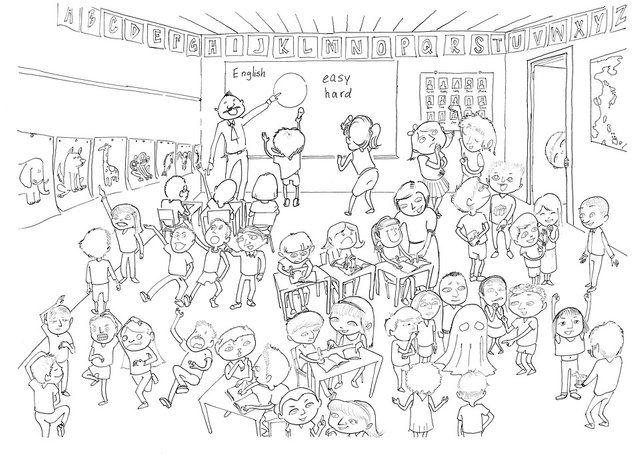The Importance of Emotional Intelligence for Educators

Every individual must have emotions. The individual's emotional level is different. Currently, emotional intelligence is an intelligence that can be managed by each individual. In the scope of education, especially the educators, emotional intelligence is very important to have. Educators must be able to control emotions in the face of the students in front of the class.
Then, what is emotional intelligence?
Emotional intelligence is the ability to identify and manage your own emotions and the emotions of others. It is generally said to include three skills: emotional awareness; the ability to harness emotions and apply them to tasks like thinking and problem solving; and the ability to manage emotions, which includes regulating your own emotions and cheering up or calming down other people.[1]
From the above understanding, emotional intelligence is a way to manage and control emotions and apply in their environment. An educator can control self-emotion and control students' emotions to create a comfortable learning environment. We can not imagine if educators are under unstable emotions, and students are also under emotional stress, then the class will not be controlled.
The educators responsible for assisting others to learn, then they need to recognize this emotional component of the teaching-learning exchange and to be able to work with it; in short, teachers need to use emotional intelligence. Why it can matter more than IQ. Goleman defined emotional intelligence as the capacity for recognizing our own feelings and those of others, for motivating ourselves, and for managing emotions well in ourselves and in our relationships. To use emotional intelligence in teaching means that you need to:
- Be able to recognize and respond to your own feelings of both you and those of the learners in the classroom in order to make you both more effective in your respective roles.
- Encourage an emotional state in the learners on your course, which is conducive to learning.[2]

So, emotional intelligence is absolutely needed by educators. Imagine if there is an educator scolded and snapped at his stubborn and mischievous students. It is also possible that the educator will hit the student. This will cause problems because there should be no physical violence in the classroom. Educators who are not able to control his emotions will cause new problems. Sometimes there are students who can not accept the teacher's treatment, then make a report to the police. Educators also have to deal with the law.
Using emotional intelligence is a prerequisite for developing a good relationship with a group of learners, which then can be the basis for producing learners who have:
- More engagement,
- Greater motivation,
- A greater readiness to take risks in their learning,
- A more positive approach,
- A readiness to collaborate, and
- More creativity and more tenacity.[2]
So, what can educators do to use emotional intelligence in the classroom?
There are many things that educators can do, for example: Institute morning meetings, starting day with a morning class meeting provides numerous opportunities to support social and emotional learning; Introduce journal writing, this familiar educational tool can be an effective way to help students develop self-awareness; Emphasize responsibility, formalize tasks in your classroom, such as maintaining chalkboards or whiteboards, bringing papers to the school office, or handing out playground equipment at recess; and Encourage creativity, Creativity is most necessary in times of emotional hardship, such as when we're frustrated or angry.[3]
Kelly A. Cherwin (in his article Using Emotional Intelligence to Teach) has some ideas on how to use emotional intelligence in the classroom, among them: Create an environment of respect, make sure you acknowledge all forms of diversity and disabilities in your classroom as well as different learning styles. Do not get frustrated if some students are not learning the material as quickly as you expect; Manage your emotions while taking responsibility, there will be situations that frustrate you, but not only should you obviously learn to hold back visible anger, you should also take responsibility for your emotions without placing blame on your students. Avoiding putting the students on the defensive may help open their minds to learning; Be honest and own up to your mistakes, if a student asks you a question and you do not know the answer, honesty can be the best policy. If you make a mistake, apologize and correct yourself and then move forward; and Validate students, we as humans like to feel valued rather than dismissed. So, make an effort to understand what your students may be feeling and relay this to them while also helping them resolve their own issues.[4]
I also want to add some ideas based on my experience. When my emotions peaked, I called the student who did the mischief. I spoke from heart to heart and advised him about respect. In addition, I try to understand their psychology. In the classroom, there are various student behaviors that sometimes annoy us. You have to understand their condition, especially the students who often make trouble in the classroom. If they can be controlled, then the atmosphere of the class will be our control and our emotions can be controlled properly. Give responsibility to the students. They will attempt to carry out the duties and responsibilities of each.
If that does not work, you should try another way. Calm your mind. Maybe you can get out of class for 5 minutes. Once your emotions are controlled, start with soft words. Students will feel guilty for their attitude. Keep understanding of your emotions and the emotions of your students. By improving your emotional intelligence, of course this will bring goodness in your classroom. It all depends on you. []
References
[1] https://www.psychologytoday.com/basics/emotional-intelligence
[2] Alan Mortiboys, Teaching with Emotional Intelligence, source: https://www.heacademy.ac.uk/system/files/2239_0.doc
[3] https://www.edutopia.org/take-action-what-teachers-can-do
[4] https://www.higheredjobs.com/Articles/articleDisplay.cfm?ID=285
Interesting article: I enjoyed reading it. :)
Thank you very much!
This post is worth, specially for those who are facing a group!! Greetings!!
Greetings! And thank you!
Emotional intelligence is absolutely needed by educators to develop a good relationship between educator and learners.
Exactly!
Fantastically informative! Love it!
Thank you!
Great post @teukumukhlis
mantap sangat pak guru saya
mantap sangat pak guru saya
Good job @teukumukhlid